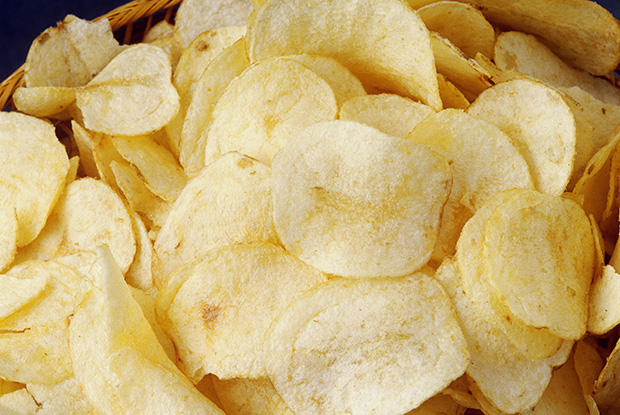How to Lose 50 Pounds in 2 Months
It's never too late to make a positive change and get the body you've always wanted. Losing 50 pounds in two months can be extremely dangerous, but that doesn't mean you can't accomplish this weight loss goal in a period of just a few months. This article will teach you how to safely lose weight fast by changing your lifestyle, and most importantly, your attitude, toward your body and toward food. Read on to learn how.
Steps
Part 1 Doing it Yourself
- 1 Vow to make a change. Forget diet and exercise---the hardest part of losing weight is actually making the decision to do it. You've probably told yourself you're going to lose weight in the past but never followed through; that's because you didn't really mean it. Vowing to make a change means being willing to give up what you want now (unhealthy foods) for something even better (the body you've always wanted). Once you have made an honest promise to yourself to make a change, the weight will take care of itself.
-
2
Weigh yourself. If you don't already know how much you weigh, then step on the scale and find out. It's important to know how much you weighed at the start of your journey so that you can better track your progress.
- Use a digital scale for the most accurate results.
- It's best to weigh yourself in the morning before you have eaten anything, and with little or no clothing on.
- You may also find it helpful to take measurements so that you can track inches lost, especially if you plan on gaining muscle (remember that muscle weighs more than fat). Use a tape measure to measure the circumference of your arms, legs, chest, waist, and/or hips. Where you measure is up to you, and will depend on your specific weight loss goals and problem areas.
-
3
Reduce your caloric intake. When it comes to losing weight, diet is the most important factor. The less food you eat, the more weight you will lose; it's as simple as that. It's important that you're eating enough to sustain yourself, though. Starving yourself will only lead you to have more cravings, binge eat, and eventually fall back into old habits.
- Many medical experts believe that most adults, regardless of their current weight, will lose weight if they eat about 1,200 calories per day. It may take some trial and error to find your magic number, so be sure to pay attention to how much you're eating in relation to the number on the scale so that you can make the necessary adjustments.
- Start keeping track of the calories in everything you eat, including the things you would normally overlook like salad dressings, cooking sauces, cooking oils, and beverages. Read the nutrition labels on everything you buy and measure out your portion sizes. You can also use online nutritional references like Calorie King and My Fitness Pal to find the calorie content of vegetables, fruit, meat, and other foods that aren't labelled.
-
4
Exercise 4-5 days per week. Cardiovascular exercises that increase your heart rate can help burn calories and temporarily speed up your metabolism in the several hours following exercise so that you lose weight more quickly.[1] Keep in mind, though, that exercise alone will not make you lose weight.[2] You absolutely must change your eating habits in order to lose weight.
- Aerobic exercises like jogging, biking, walking, swimming, dancing, and kickboxing are all great for burning calories while improving your overall health. If you are new to exercising, then start off slow and ease yourself into a regular workout routine. It's important to find an exercise that you genuinely enjoy so that you will actually do it every day.
- Aim to get at least 20 minutes of aerobic exercise 5 days a week. If you don't have time to exercise every day, then find ways to incorporate more movement into your daily routine by making simple changes like taking the stairs rather than the elevator.
- Building muscle through resistance training can also help you lose weight. The more muscle mass you have, the more calories your body burns, even at rest.[3] Keep in mind that muscle weighs more than fat, though, so you may want to hold off on resistance training until you have already lost some weight.
-
5
Drink eight glasses of water each day. Staying properly hydrated is crucial to maintaining your overall health, but it has also been proven to aid in weight loss.[4] This is perhaps due to the fact that water helps keep your stomach full in between meals and prevent mindless snacking.
- Drinking water before a meal has been shown to aid in weight loss by reducing the amount of calories consumed during the meal.[5] Try drinking one or two glasses of water 20 minutes before each meal to feel fuller faster.
- If you don't like the "taste" of plain water (even though there's no taste) then infuse your water with lemon juice, lime juice, fruit, or mint leaves to add some flavor.
-
6
Keep a diet journal. Studies have found that people who keep track of what they eat by writing it down lose more weight, and keep it off, than those who don't.[6] That's because writing down what you eat holds you more accountable to the decisions you make and helps you notice patterns in your diet so that you can determine what works and what doesn't.
- Be sure to include the calories in everything you consume. That includes the calories in beverages, oils, dressings, sauces, spices, and garnishes.
-
7
Cook your meals at home. Even with the best intentions, eating out can ruin your diet quickly. Cooking meals at home makes it easier to choose healthy options and control your serving sizes. Plus, you'll be saving lots of money by eating at home!
- When you do eat out, you can cut down on calories by asking for sauces and dressings on the side.
- Use cooking sprays rather than olive oil or butter when cooking at home. If you do use olive oil to cook, be sure to measure out how much you are using as one tablespoon contains more than 100 calories.[7]
- Pack a healthy lunch and bring it with you to work or school, and be sure to include healthy snacks like carrots, celery, and apples to keep you satisfied in between meals.
- 8 Allow yourself a cheat day. No matter how committed you are to dieting, it's inevitable to have a slip-up every now and then. For many people, social events like birthday parties or picnics make it difficult to eat healthy--remind yourself that it's okay to indulge every once in a while. Giving up your social life for a diet will make you feel miserable and you'll be tempted to quit before reaching your goals.
Part 2 Other Options
-
1
Consider weight loss surgery. If you are clinically obese and have serious medical conditions related to being overweight, you might consider bariatric surgery. There are a few different kinds of bariatric surgery, but most methods involve either decreasing the size of the stomach or the length of the small intestine[8] so that patients are forced to eat less.
- Candidates for weight loss surgery have a BMI of 40 or higher, have been overweight for several years, and have never been able to permanently lose weight through diet and exercise.
- Talk to your doctor if you think that you might be a good candidate for weight loss surgery. Remember that like any other surgery, there are risks involved. Weigh the pros and cons of the procedure before agreeing to go through with it.
-
2
Join a weight loss program. If you have the will power to lose weight the natural way but need some guidance, then joining a weight loss program may be the best choice for you. Some programs, like Jenny Craig, do most of the work for you by preparing low-calorie meals that you eat throughout the week. Others, like Weight Watchers, teach you how to make your own healthy meal choices using a "points system" that is based on caloric intake.
- Weight loss programs help keep you accountable for the choices you make and allow you to connect with nutritionists and other dieters.
Part 3 Tips and Tricks
- 1 Drink unsweetened tea or coffee in between meals. The caffeine in tea and coffee can help curb your appetite. If you struggle with nighttime snacking, then sip on herbal tea in order to keep your mouth and mind occupied.
-
2
Get enough sleep. Being sleep deprived not only inhibits your ability to think and function properly, it can actually increase your appetite and slow down your metabolism.[9] Aim to get at least 7 hours of sleep every night.
- Adjust your schedule if necessary. If you have to wake up very early for school or work, then slowly get in the habit going to bed earlier each night to compensate.
-
3
Tackle stress. Some stress is inevitable, but excess stress releases the hormone cortisol, which is responsible for fat storage, particularly in the midsection.[10] Stress may also be an underlying cause of your overeating, since food has a calming effect for many people. Remember that eating only offers temporary relief from stress and anxiety, but doesn't actually solve any of your problems.
- One way you can help relieve the amount of stress you feel on a daily basis is to learn to better manage your time. Avoid procrastinating and saving your tasks for the last minute, and keep your eye on the clock throughout the day so that you aren't constantly rushing to get to where you need to be.
- Cleaning your environment can also have a tremendous impact on your stress and frustration. Set time aside every single day to clean up your environment; whether it's your bedroom, your office, your kitchen, your car, etc.
- Take up meditation, yoga, or other relaxation practices to help you stay grounded and relaxed on a daily basis.
- 4 Find something to replace food with. Dieting doesn't have to mean constantly feeling miserable or deprived. If food is your main source of joy and comfort, then it's important to find something that you love even more than, or just as much as, eating to keep you feeling satisfied. This might be spending time with friends, indulging in a hobby, going shopping, playing an instrument or sport, or even just relaxing in front of a movie or in the tub.
- 5 Don't weigh yourself every day. The scale is a great way to track your weight loss in the long run, but weighing yourself every day will drive you crazy. Remember that everybody's weight fluctuates a few pounds throughout the day for a variety of reasons, and much of the fluctuation can be attributed to water weight. Weigh yourself twice a week at most.
-
Choosing a Swimsuit to Enhance Your Beauty
Choosing a Swimsuit can be a frustrating but necessary part of c
-
How To Keep Your Weight Under Control?
Everything about weight control Women are the main sufferers of obes
-
X-Weighted TV Show Casting Call
Have you ever wanted to be beat up on a fitness/diet show? X-Wei
-
Healthy Weight Loss Is A Key To Reduce Fat!
In your efforts to seek healthy weight loss, you must not lose your h
-
5 Reasons Why Youre Gaining Belly Fat
Belly fat is bad news, and not just because you'd like to show off
-
Weight Loss � Herbal Remedies For Weight Loss
This just means that when you lose extra amount of pound off from you
- DON'T MISS
- Hypnosis For Your Appetite
- 7 Simple Ways To Keep Winter Weight Gain At Bay
- The Right Way To Lose Weight Every Time
- 7 Spices that Help You Lose Weight
- This Is What Its Like To Have Weight Loss Surgery
- A Little Known Hormone That Sabotaging Your Weight Loss and How To Fix It
- Weight Loss Tip #41 – Lose weight with a mixture of lemon, honey and warm water
- 3 Classic Diet Mistakes Thatll Cause You To Gain Weight This Holiday Season
- Obese People Need Proper Weight Loss Advice.
- Weight Loss Success: A Nutritionists 10 Best Tips




